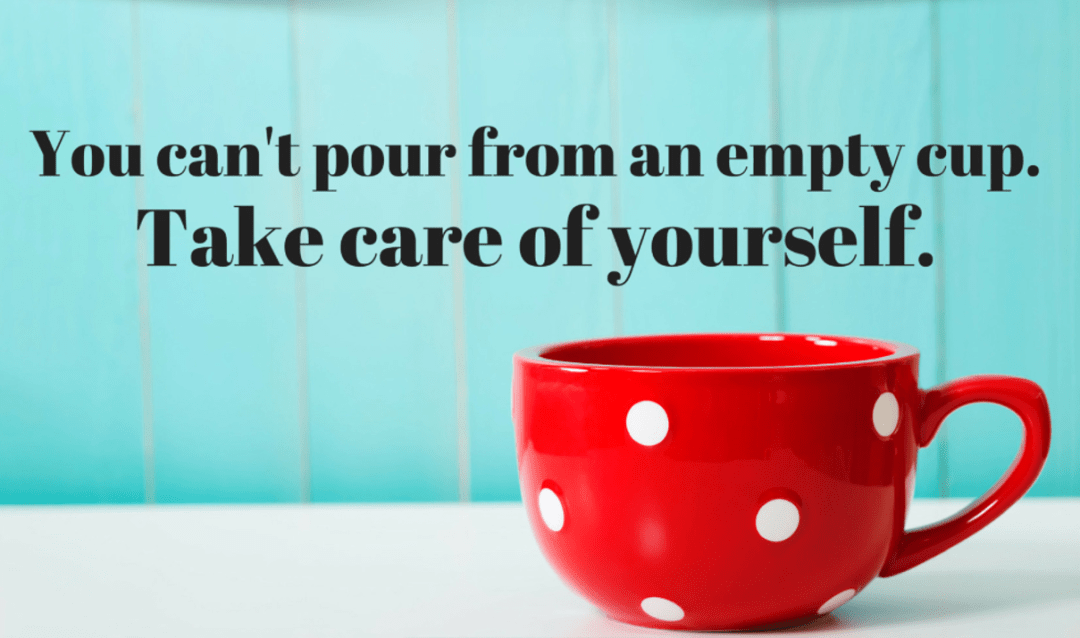Self-care in an uncertain world
Now, more than ever, it is vital to give your mind and body the food, rest and activity needed to help you deal with challenging situations.

Living through difficult times can be exhausting and lonely. Taking time for self-care when there is so much to do may seem indulgent. Avoid that trap. Look after yourself. Self-care refers to the activities and practices that you regularly choose to do, which enhance your mental health and support wellbeing. Here are ten suggestions to help you improve the way you look after yourself:
- Connect with other people. Loneliness is debilitating. Take steps to build a network of people who will support you through good times and bad. Talking out issues and discussing solutions keeps things in perspective. Social conversations are just as meaningful as you can enjoy a laugh and talk about the happier side of life. Good relationships help create a sense of belonging and add to self-worth by sharing positive experiences. Check out the resources offered by NHS One You as these provide suggestions for keeping in touch while observing social distancing.
- Raise your pulse. It doesn’t matter what you do, get moving. The effort will invigorate and enable you to think more clearly. Being active is great for physical health and essential to maintain fitness. Evidence shows it can also improve your mental wellbeing by raising your self-esteem, which can motivate you to set goals then act to achieve them. Exercise causes chemical changes in the brain which influence your mood positively. The NHS provides a range of excellent Get Fit for Free resources which give plenty of ideas to get you moving.
- Learn new skills. Research shows that learning new skills can improve wellbeing by boosting self-confidence. Learning can also provide a sense of purpose and enable you to connect with others through a shared interest. Many assume that large chunks of time are necessary for new learning. However, short blocks of time can be just as useful – if you focus. There are lots of enjoyable and straightforward ways to bring knowledge into your life. For example, reading a new book, watching a TED talk, listening to a podcast or trying out new recipes. Take a look at the selection of podcasts and programmes on a variety of topics from science and classical music to comedy and hip hop via BBC Sounds.
- Get enough rest. Make your bedroom a comfortable sanctuary where you can relax. Buy an old fashioned alarm clock so that you don’t rely on your phone to wake you. Banish all electronic devices to avoid the temptation to read email or surf the net instead of resting. Treat yourself to the best bed linen you can afford. If you find it hard to sleep, try saying this mantra as you settle down in bed ‘Nowhere to go. Nothing to do.Time to rest’. Repeat three times and allow your body to relax. Check other practical tips offered by the Sleep Council
- Mindful minutes. Pressing ‘pause’ on your day helps to ground you in the present moment. A simple approach is to focus on the senses, which can include taste, hearing, sight, smell and touch. Try breathing in the fragrance of your morning beverage before drinking. Notice the soft feel of water on your skin and smell of the soap. Stretch and scrunch your bare toes into the carpet. Why not go for a ‘savouring walk’ to combine movement with meditation. Spend 20 minutes walking outside, preferably somewhere green and take time to notice what is around you.
- Eat well. Stay hydrated. The Public Health England Eatwell Guide shows that to have a healthy, balanced diet you need: at least five portions of fruit and vegetables a day; base meals on higher fibre starchy foods like potatoes, bread, rice or pasta; have some dairy or dairy alternatives); eat some protein such as beans, pulses, fish, eggs or meat; and choose unsaturated oils and spreads in small amounts. PHE also recommend at least 6 to 8 glasses of water a day. If you find tap water boring, try adding a sprig of mint or a dash of lime or slices of cucumber. NHS Better Health has a range of free tools and apps to help stay healthy by eating well.
- Tame workload. Time is your most precious asset. It cannot be saved, nor recovered once lost. The better you manage your time, the better you will feel with more energy to get things done that are important to you. Start with an audit of what you are doing. Then create three lists for things to Do, Ditch and Delegate to bring it under control. Try using time chunking methods such as the Pomodoro Technique which focus your attention on a job for a sustained period, for example, 25-minutes, followed by a short 5-minute break to clear your mind by doing something else.
- Keep breathing. Take a few minutes to breathe deeply. Enjoy feeling composed through a focus on the breath. Try Box Breathing: in for four, hold for four and out for four. Repeat at least three times, then breathe normally.
- Show gratitude. Reflect on three good things that make you feel confident and happy. Consider these questions if you are finding it tough to get going: What has gone well for me? What am I grateful for in my life? Who am I thankful for in my life? Try it every day for one week then shift to once or twice a week. It only takes a few minutes and costs you nothing but the effort of focusing on what has gone well for you. Write down the three things as this action will cement the positivity generated in your mind.
- Master your reactions. You can’t control others behaviour and emotions, but you can choose how you react. Pause and breathe into the moment before deciding your response. Remember to WAIT (what am I thinking?). Reflect on the difference a measured approach has on your wellbeing and ability to cope.
Being seen to take care of yourself will also encourage those you lead at work to do the same. Choose to make staff wellbeing a priority. Be a champion for the relevant actions to ensure that it is taken seriously across the organisation. The benefits are measurable. Consider the 2020 Health and Wellbeing at Work Report from the CIPD that indicates most organisations with health and wellbeing activity report positive outcomes over the last 12 months.* More than half report it has resulted in better employee morale and engagement and a healthier and more inclusive culture. Moreover, three in ten report it has lowered sickness absence, enhanced employer brand and reduced work-related stress. So, self-care is good for business too.
Beverly Landais PCC
Certified Personal & Team Coach: enabling people to be at their resourceful best
We live in an ever-changing dynamic world. At best, this can be exhilarating and provide excellent opportunities for personal growth. At worst, it can be exhausting and stressful as you try to do it all, which can lead to the feeling that you are doing nothing well. Maybe you are in such a situation? Perhaps you have reached a point where you long to create the life that you want rather than the one that is happening? If so, I may be the right coach to support you. My purpose is simple. I work with people to help them be at their resourceful best. I bring all of my expertise to the service of my clients. My skill set includes 30 years of experience in business, including board level. As a Professional Certified Coach and Positive Psychology Practitioner, I can help you to think your options through, make better choices and do the things that promote wellbeing, bring personal as well as professional satisfaction and make you happy. I am particularly skilled in supporting those who are at a crossroads in their life. My coaching approach can help you gain a clear understanding of your values, motivators, drivers, strengths and consider the impact of blind spots – and what you can do to mitigate these. I work via video calls, by phone and email. Should you wish to arrange a 30-minute complimentary discovery session, please contact me via connect@beverlylandais.co.uk



